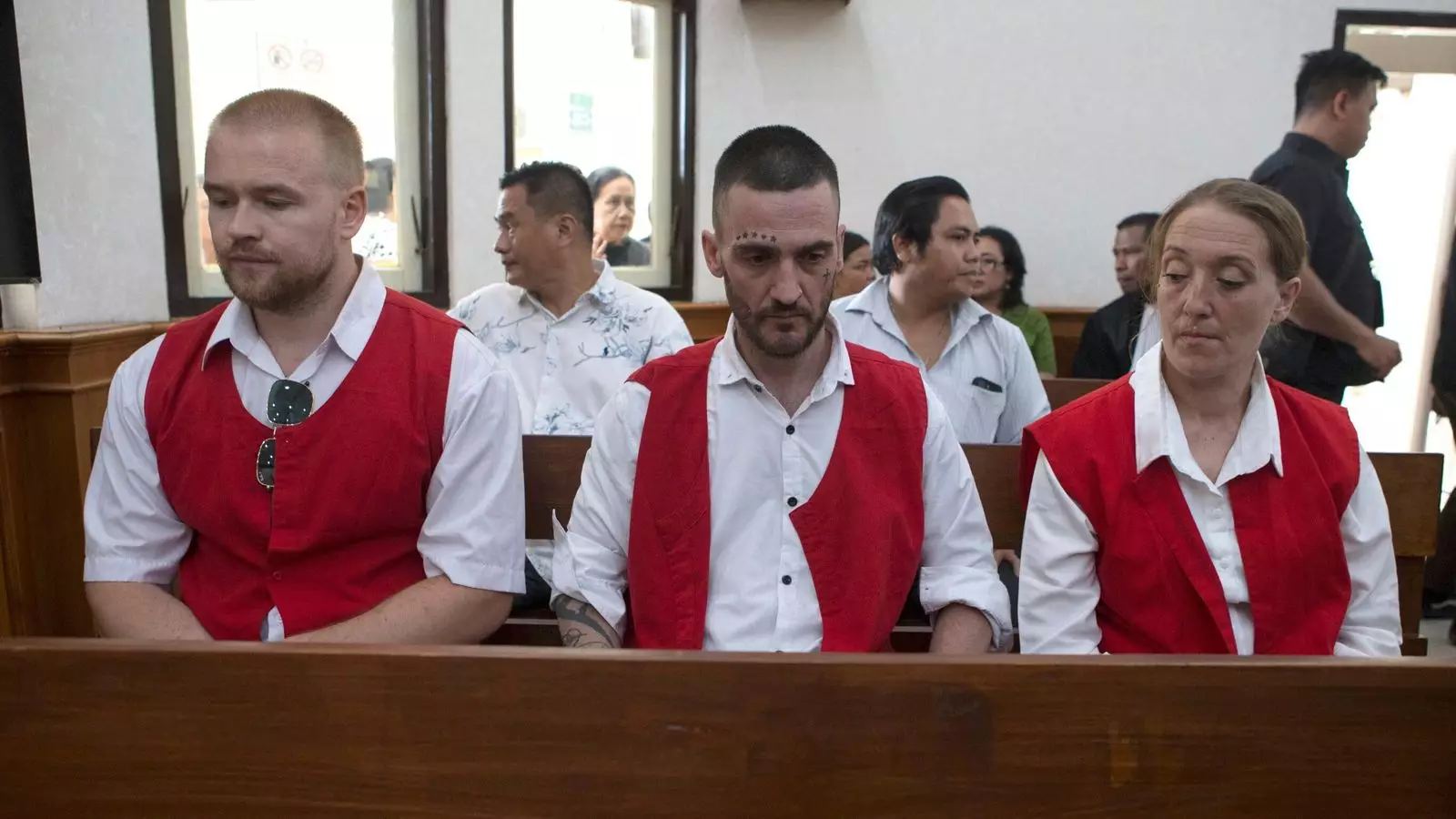The arrest of three Britons in Bali for drug smuggling has ignited another intense debate around Indonesia’s stringent drug laws and their often draconian consequences. Jonathan Christopher Collyer and Lisa Ellen Stocker allegedly smuggled nearly a kilogram of cocaine into the country, only to be caught in a web of enforcement that reflects both Indonesia’s tough stance on drugs and the broader international complexities of drug trafficking. As they face the harrowing prospect of the death penalty, one has to question the fairness and proportionality of such legal repercussions.
This case illustrates the perilous crossroads at which the Indonesian legal system stands. The severity of potential punishment exacerbates the already daunting risk involved in drug trafficking. With an estimated value of around £272,000 on the street, the stakes were high. However, should smuggling such substances warrant a death sentence? The chilling history of Lindsay Sandiford, languishing on death row for over a decade for a larger quantity of cocaine, underscores the potential for misuse of these laws. It prompts us to ponder: Are such harsh measures genuinely deterrents, or do they expose a troubling brutality within the nation’s judicial philosophy?
The Lure of the Drug Market
Indonesia’s troubling status as a major drug smuggling hub is not simply the result of lax domestic laws but is also a consequence of international syndicates capitalizing on the country’s yearning youth demographic. The United Nations has long indicated that these organizations are keenly aware of Indonesia’s strict laws, leveraging them to impose grim choices upon their targets. As noted by Ponco Indriyo of the Bali Police Narcotics Unit, Collyer and Stocker are not isolated examples; they had previously succeeded in smuggling cocaine into Indonesia on two occasions. This historical pattern severely undermines the assertion that harsh sentences are an effective deterrent.
Moreover, the burgeoning international drug trade often preys on economically disadvantaged individuals who may see drug trafficking as a path to a better life, albeit a perilous one. While Collyer and Stocker’s choices are undoubtedly questionable, the ominous pressures that precipitated those choices must be scrutinized. When facing dire economic realities, some may perceive drug smuggling not as criminality but as an unfortunate means of survival.
The Ethical Dilemma of Capital Punishment
The question of capital punishment in Indonesia invites a wealth of ethical considerations that cannot simply be brushed aside. With approximately 530 individuals, including 96 foreigners, languishing on death row for drug-related offenses, the moral implications of executing non-violent offenders are hauntingly apparent. The prospect of death as a punishment for trafficking drugs reflects an underlying punitive ethos, one that disproportionately affects marginalized groups while arguably failing to address the larger systemic issues fueling the drug trade.
As we reflect on these developments, it’s crucial to acknowledge the critiques of such a system. Is the state proving a point through executions, or is it merely perpetuating a cycle of violence? When the response to drug offenses is lethal, society must reconsider the relationship between enforcement, justice, and rehabilitation. One cannot overlook the irony that while Indonesia presents itself as a bastion of stringent drug laws, it simultaneously fosters a landscape ripe for exploitation.
A Call for Reform
In light of the general state of drug policy in Indonesia, it becomes apparent that reform is sorely needed. Moving forward, the government must embrace more nuanced approaches to fight drug trafficking while offering rehabilitation rather than retribution. Countries that have effectively addressed similar issues tend to prioritize treatment and education over brutal enforcement mechanisms.
In the cases of Collyer, Stocker, and others like them, a more sophisticated understanding of the drug trade may lead to fairer and more constructive outcomes. Stricter enforcement and death sentences may seem effective at first glance, but they often ignore the complexity of human behavior, economic necessity, and indigenous socio-political issues. Transitioning to a model that emphasizes rehabilitation rather than punishment can ultimately create a healthier societal response to widespread drug trafficking and its underlying causes.
The situation in Indonesia is a striking reminder that the harsh realities of drug policy could benefit from compassion, acknowledgment of systemic failures, and a commitment to reform. The focus should be on creating lasting change that encompasses understanding, rather than merely perpetuating fear.

